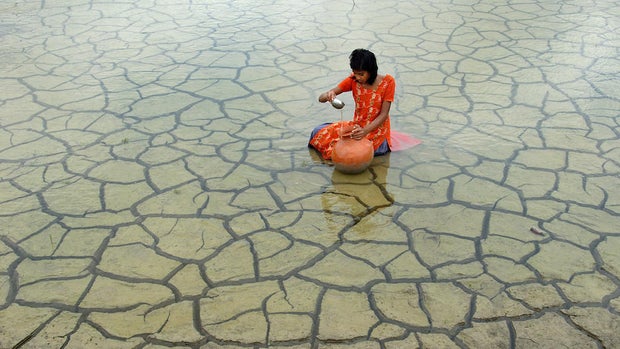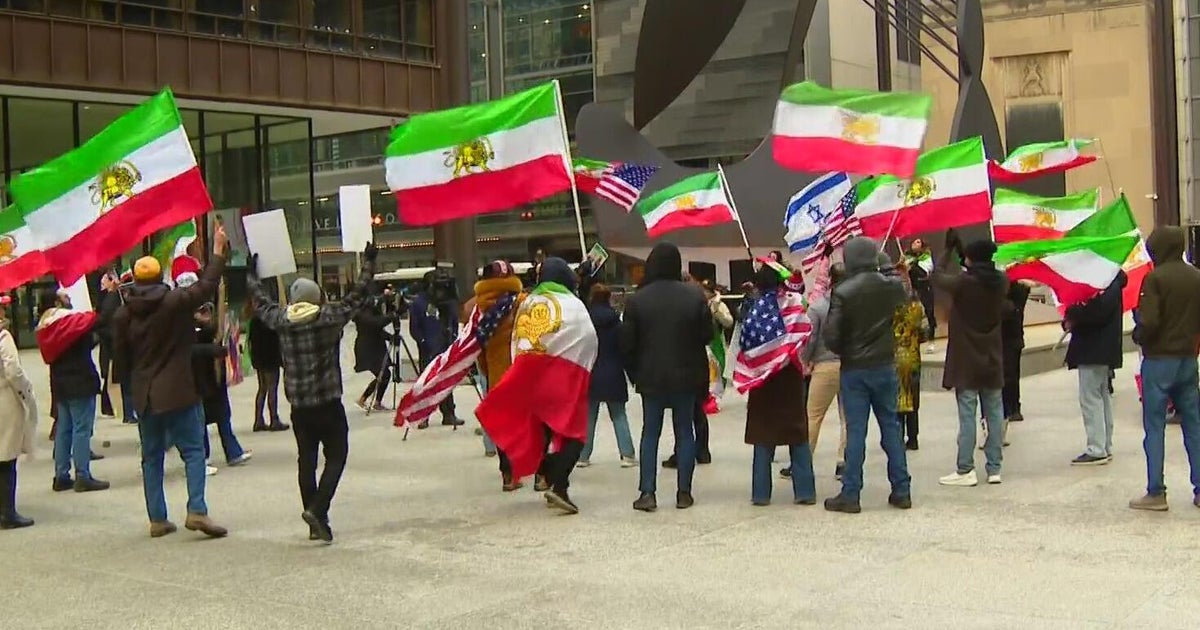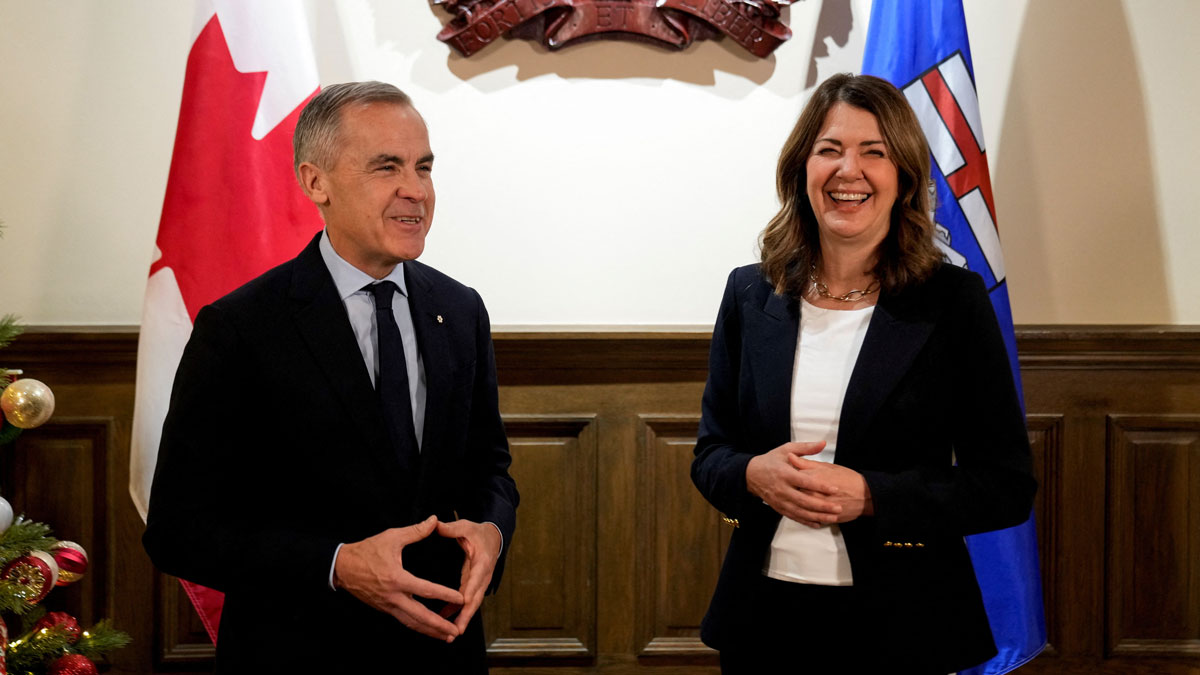The U.S. is out of the G-7 climate pledge
BOLOGNA, Italy — The United States refused Monday to sign on to a Group of Seven pledge that calls the Paris climate accord the "irreversible" global tool to address climate change.
The G-7 environment ministers issued a final communique Monday after their two-day meeting, the first since the United States announced it was withdrawing from the Paris climate pact. In a footnote to the communique, the United States said it wouldn't join with the other six countries in reaffirming their Paris commitments, but said it was taking action on its own to reduce its carbon footprint.
"The United States will continue to engage with key international partners in a manner that is consistent with our domestic priorities, preserving both a strong economy and a healthy environment," the footnote read.
As a result, the U.S. said it would not join those sections of the communique on climate and multilateral development banks.
The head of the U.S. Environmental Protection Agency, Scott Pruitt, had attended the first few hours of the summit Sunday, but then left to attend a Cabinet meeting in Washington.
Bucking mainstream scientific consensus, Pruitt has argued that carbon dioxide is not a primary cause of global warming — placing him directly at odds with the premise of the Paris Agreement, a framework for nations to lower their carbon emissions starting in the year 2020.
Presenting the communique Monday, Italy's environment minister, Gian Luca Galletti, called the Paris accord "irreversible, non-negotiable and the only instrument possible to combat climate change." He said the other G-7 countries hoped to continue "constructive dialogue" with the U.S., but insisted on the Paris parameters.
"Everything else for us is excluded," he said.
The 2015 Paris agreement aims to prevent the Earth from heating up by any more than 2 degrees Celsius (3.6 degrees Fahrenheit) since the start of the industrial age. Since the world has already warmed about 1.1 degrees Celsius (2 degrees Fahrenheit), the accord aims to ensure the threshold is not breached, with each nation setting goals to curb heat-trapping emissions.
All but a very few scientists say the overwhelming majority of global warming is man-made. Scientists have known since the 19th century that burning coal, oil and gas spews carbon dioxide into the air, which then acts like a blanket to trap heat on Earth.
President Donald Trump announced the U.S. was withdrawing from the Paris accord earlier this month, framing it as a "reassertion of America's sovereignty." He has said the U.S. could try to re-enter the deal under more favorable terms, but the European Union — and in particular Italy, France and Germany — have said the Paris accord cannot be renegotiated.
The former chief of United Nations climate negotiations has echoed that criticism, saying the White House has "no understanding of the legal underpinning" of the Paris Agreement.
In a statement, the EPA said the U.S. had "reset the climate change discussion" at the G-7 meeting and stressed that it was a party to the 15-page communique, except for the four pages dealing with climate change and financing for sustainable development.
"Today's action of reaching consensus makes clear that the Paris Agreement is not the only mechanism by which environmental stewardship can be demonstrated," Pruitt said in a statement.
In fact, the final text doesn't say the Paris accord is the only tool for tackling climate change. Rather, it says that the accord is "the global instrument for effectively and urgently tackling climate change and adapting to its effects."
It says the six G-7 nations — Canada, France, Germany, Italy, Japan and the United Kingdom, as well as the European Commission — agree that the Paris accord is "irreversible and its full integrity is key for the security and prosperity of our planet, societies and economies."
While voicing dismay at the U.S. position, which was expected, environmental groups and concerned countries voiced optimism that the remaining six nations reaffirmed the Paris process and that the U.S. withdrawal had led to a groundswell of support elsewhere for the accord.
"Our hope is that together with big emerging economies we can turn our commitments into action — boldly enough and quickly enough — to protect the most vulnerable among us," said Thoriq Ibrahim, the Maldives environment minister and chair of the Alliance of Small Island States.
No place in the Maldives is higher than seven feet ten inches above sea level, and the small island nation is expected to suffer tremendous losses as sea levels rise in the Indian Ocean.
France's environment minister, Nicolas Hulot, said he hoped many countries would follow France's lead in scaling up their pledges and accelerating the timetable on implementing Paris benchmarks in response to the U.S. withdrawal. He repeated that there is a new "economic model" to be found in developing clean energy.
"Let us make sure that Europe takes its part in this economic opportunity," he said.
While President Trump's decision to pull out of the Paris Agreement fundamentally altered the global dynamics of of climate change action, others are stepping in to try to fill the gap.
In the wake of the U.S. pullout, former New York City Mayor Michael Bloomberg has emerged as a coalition builder, bringing together more than 1,000 entities — from cities and states to corporations to universities — pledging to reduce carbon emissions independent of federal policy.
"Mayors, governors, and business leaders from both political parties are signing onto to a statement of support that we will submit to the U.N. – and together, we will reach the emission reduction goals the United States made in Paris in 2015," Bloomberg said in a statement. "Americans will honor and fulfill the Paris Agreement by leading from the bottom up – and there isn't anything Washington can do to stop us."
Bloomberg also said his charitable organization, Bloomberg Philanthropies, will commit up to $15 million to help fund global efforts lacking support from the U.S. government.
In another development last week, California Governor Jerry Brown and Chinese President Xi Jinping signed an agreement to expand trade between California and China with an emphasis on sustainable technologies, according to Brown.




